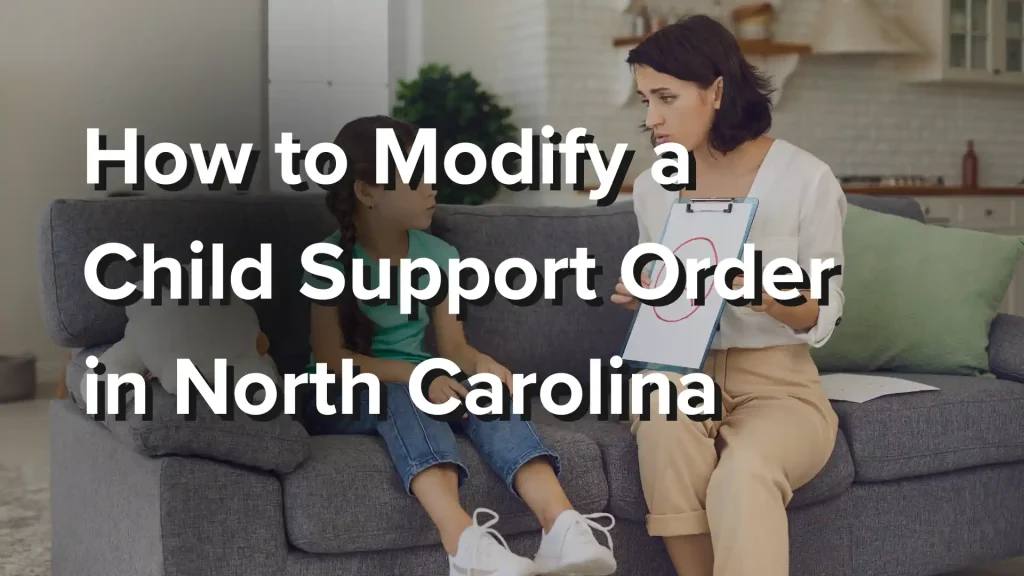
Child support doesn’t always stay the same. As kids grow and life shifts, what made sense a year ago might no longer work today. Whether you pay support or receive it, you may reach a point when an update becomes necessary. A child support lawyer in Raleigh will help you take the proper steps. Support orders follow strict guidelines, but those rules still allow room for change. You won’t adjust the amount alone; the court must approve it. The court could reject the request if you ask for too little, too much, or miss a legal parent requirement. That’s why it’s essential to understand how to modify child support payments to cover appropriately, so your request meets legal standards and reflects your current situation.
A substantial modification starts with an apparent reason, the proper paperwork, and an honest look at your current situation.
What Is Child Support Modification?
Child support modification is a legal process that changes the amount one parent pays the other. After the court issues a final order, either parent may request a change.
In North Carolina, the court won’t make adjustments unless you show a substantial change in circumstances or unless it’s been three years since the earlier order. A considerable change is something significant, not a minor or temporary setback.
If the court approves your request, it will replace the current order with a new one that reflects your updated situation.
Reasons to Modify Child Support Orders
North Carolina law allows for modification when life takes a significant turn. Examples include:
- A parent’s income changes by 15% or more
- One parent loses a job or gets a higher-paying one
- A new custody schedule shifts parenting time
- A child turns 18, moves out, or no longer needs support
- A parent takes on new medical expenses or financial obligations
You won’t need to prove bad faith. However, you must show that the change affects the child’s needs or either parent’s ability to meet those needs.
Steps to Modify a Child Support Order
The child support modification process follows a clear path through the family court. Here’s what that will include:
Review the Current Order
Start by reading the original court order. Check the amount of child support, dates, and custody terms. That information will help you explain why the order no longer works.
Gather Evidence
The court will not accept a verbal request. You must provide documentation. Gather pay stubs, tax returns, medical records, or custody calendars that show how your situation has changed.
File a Motion to Modify Child Support
You must return to the same court that handled your original order. Your motion should explain what’s changed and why the current setup no longer works for your family.
Serve the Other Parent
Once you file the motion, you must legally notify the other parent. They will have a chance to respond and present their evidence.
Attend the Hearing
Both parents will appear before a judge. The court will request a review of the evidence and ask questions. You must explain how the changes affect your ability to pay or care for your child.
Wait for the Court’s Decision
If the judge agrees that a substantial change occurred, the court will issue a new child support order. That order replaces the previous one and becomes legally binding.
Changing Child Support Payments
A judge may increase or decrease support based on what the facts show. For example:
- A pay raise may lead to higher payments
- A job loss may reduce the amount
- More parenting time may shift financial responsibility
The court won’t modify support just because one parent asks for it. The evidence must support the change.
You also can’t retroactively adjust past payments. The new order will apply going forward, not backward. Any missed payments under the old order must still be paid.
Please read more about child support special needs here: Understanding Child Support for Special Needs Children.
Custody Changes and Child Support Adjustments
Custody and support go hand in hand. If the parenting schedule shifts, support may need to change, too.
North Carolina uses three worksheets to calculate child support:
- Worksheet A for primary custody
- Worksheet B for shared custody
- Worksheet C for split custody
The new worksheet could lower the payment if a parent gains more overnights or moves to a shared schedule. If one parent takes on full custody, the court may increase support to reflect that shift. Even small custody changes may affect how the court views financial responsibility.
Financial Hardship and Child Support Modification
Temporary hardship alone may not qualify for a request for a modification. The court looks for long-term or permanent changes that affect a parent’s ability to meet obligations.
Still, if you face job loss, serious illness, or another unexpected event, you should file a motion immediately. Waiting too long may result in unpaid support that continues to add up until the court steps in.
If you cannot pay, the court expects you to step up, not disappear. An early response shows that you take the responsibility seriously.
Court Approval for Child Support Changes

You can’t make an informal agreement with the other parent and assume it will stand. North Carolina requires formal court approval for any changes to a support order.
Even if both parents agree, the court must sign off before the change becomes valid. This protects the child’s interests and keeps both parents accountable.
A judge will always base the decision on what serves the child’s best interests, not just the parents’ preferences.
Updating Child Support Payments
After the court approves a change, the new order replaces the old one. That updated amount becomes the new standard moving forward.
Based on the court’s timeline, you must start paying the new amount right away. The court may also update wage withholding, insurance responsibilities, and tax credit instructions.
Keep a copy of the updated order for your records and confirm any changes with your employer or child support agency.
When Life Changes, So Can Support
You have options if your financial situation or custody arrangement no longer matches your support order. A child support lawyer in Raleigh will help you file the proper motion, present strong evidence, and follow the process from start to finish.
At Marshall & Taylor PLLC, fair support helps everyone move forward. We will work with you to request changes that make sense for your family’s future. Our team is here to help you understand your rights and take the first step toward securing the necessary benefits. Contact us online or call (919) 833-1040 to speak with a Raleigh child support attorney who understands what matters most.
Related Post
Firms advocating for fathers in child custody cases are increasing
Foster parents celebrated for their commitment to caring for children
